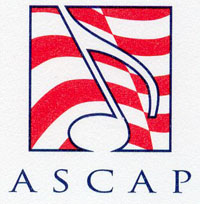 My junior year of college I worked as a spy. At the age of 21, I liked to refer to myself as The Youngest Spy in the World. There was no real way of knowing if this was true or not.
My junior year of college I worked as a spy. At the age of 21, I liked to refer to myself as The Youngest Spy in the World. There was no real way of knowing if this was true or not.
There was no Facebook.
This was 1989. Before the Internet. Before hostesses stopped asking “Smoking or non?” and before toothbrushes started looking like sneakers.
Today, kids probably have more opportunities to become spies at an earlier age because kids now do everything at an earlier age. They go through puberty earlier, they experiment with sex at an earlier age and they probably get hired as secret agents earlier, too. Which means I probably no longer hold the unique distinction as being the guy who was once The Youngest Spy in the World.
If, indeed, I ever really was.
I’m not talking about a 007 sort of spy. Were that the case, certainly I wouldn’t be at liberty to talk about my secret agenting in the kind of granular detail I’m about to.
No, my life was never on the line. Though maybe my reputation was, if the girls back on campus ever found out.
My line of espionage was in the music industry. I worked for an organization called ASCAP. Which shouldn’t be confused for its anagrammatical cousin, the ASPCA. The former protects authors and composers while the latter protects animals. When Ozzy Osbourne bit the head off a dove during one of his concerts in the 80s, I always imagined representatives from ASCAP and ASPCA on the phone with one another, no doubt confounding bemused ditzy receptionists forced to take messages. “Wait, you’re calling from where?”
 Among other things, ASCAP collects royalties for songwriters. They monitor radio station playlists and determine which of their clients are being played most often. Based on some cockamamie algorithm or other, the millions of dollars they take in every quarter are distributed to members worldwide, including classical composers, whose earnings are subsidized by artists like Michael Jackson and Madonna.
Among other things, ASCAP collects royalties for songwriters. They monitor radio station playlists and determine which of their clients are being played most often. Based on some cockamamie algorithm or other, the millions of dollars they take in every quarter are distributed to members worldwide, including classical composers, whose earnings are subsidized by artists like Michael Jackson and Madonna.
ASCAP collects a blanket licensing fee from any establishment playing their clients’ music: clothing stores, restaurants, bars, malls, you name it. When the establishments don’t pay the yearly fee, a spy is sent in to record and notate every song played over the course of an evening. The playlist is then used as evidence in court.
Curiously, the establishments most often delinquent in paying such fees, at least the year I worked for them, were strip bars.
Yes, in 1989 I was paid $25 an hour to sit in strip bars all across Connecticut with a Dictaphone taped to my chest as nude girls ground into my nether region waiting for me to slip a dollar into their garter belts.
And the best part about it? The dollar bills were reimbursed by ASCAP, as were all travel charges, hotels, and food.
Now, you might not expect the food in a strip bar to be anything worth writing about. But there you’d be wrong because I’ve never, in my entire life, eaten anything even remotely as foul.
A hamburger at one bar in Danbury resembled a ground beef patty less than it did a hockey puck in both consistency and flavor. In New Haven, the chicken fingers I consumed went down more like chicken fingernails, and for some reason, a fine establishment in Stamford decided the heat lamp was a perfectly suitable way to cook—not defrost—but cook pizza. If asphalt were a food, these places would have served it up, I am sure.
 Now, you might say to yourself, ‘Yes, but with the free-flowing, reimbursable dollar bills, what would a 21-year-old college boy care about food in such a workplace?’
Now, you might say to yourself, ‘Yes, but with the free-flowing, reimbursable dollar bills, what would a 21-year-old college boy care about food in such a workplace?’
But the truth was, being The Youngest Spy in the World was taxing. The Dictaphone was buried under my shirt, making the songs hard to decipher once I got back to campus. So I often slipped into the bathroom and whipped out a pocket-sized spiral notebook that conveniently had the words Pocket-Sized Spiral Notebook printed on the cover, just in case I forgot. Hastily, I’d scribble down as many songs as I could remember, which, over the course of several hours, really made me crave sustenance of a different kind.
And besides that: when you’re a poor college kid, free meals are free meals. As deflavorized as the food was, it was still on ASCAP, which meant more money in my bank account for important things, like weekend trips into New York City where I’d try to locate other peculiar college kids of the opposite sex who had a penchant for Mahler, Balanchine, and all things Edward Gorey.
Ah, if only Facebook existed back then.
David K. Israel is the author of the novel Behind Everyman. He's recently finished a second novel called The Art of Love (after Ovid) and writes a daily blog for www.mentalfloss.com.

